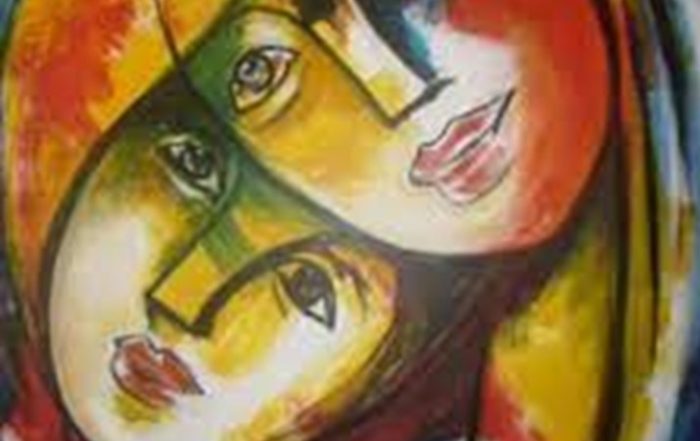MARTYRDOM WITHOUT DEATH? IMPOSSIBLE!
- Hnasmdro
- marzo 20, 2023
- MDR Experiences
- 0
- 227
“There is the martyrdom of those who are put to death for not denying Jesus Christ…. But there is also the daily martyrdom, which does not entail death, but which is also one type of “losing one’s life” for Christ, fulfilling one’s duty with love, according to the logic of Jesus…!”
Pope Francis, Angelus of July 4, 2013.
– “Hurry up, the bus is coming!”, Sister Teresa shouts from the kitchen to Sister Carmencinha.
– “I’m coming,” she replies, as she changes the white blouse of her congregation’s uniform for a pink one. From the town where her community is located, she heads early to the capital, because she is going to the central offices of Migration to continue with the never-ending process of her residency. That is why she tries not to wear the colors of the flag, so as not to attract attention or be misunderstood. She knows that by the mere fact of being a religious and foreigner she already has an asterisk from the authorities. She heard about some nuns who, months before, was not allowed her entry to the country, and one of them was a national. All because they were carrying in their bags t-shirts allusive to the nation and flags, which was catalogued as “artifacts that attempted against social peace”.
Carmencinha hurries out of the house until she reaches the corner where she can board the bus. Once on the bus, she sits by the window. She prefers this place, because she can contemplate the scenery, take in the air and even fall asleep without nodding off too much. She is a little afraid of today’s procedure, because the last time she entered the country she was taken to a small, semi-dark room to be questioned for a long time. This because the airline did not send her in time the questionnaire, she had to fill out beforehand, requesting the Government to allow her to enter the country. And, on top of that, the community coordinator did not send the request for entry to the country seven days ahead of arrival. But well, she puts herself in God’s hands as she reclines her seat and closes her eyes.
“What a disgrace! Religious women, men religious and priests are seen as a danger to the nation,” she said to herself. “We cannot express ourselves from the Gospel, because we are repressed; we cannot even take out a procession. All this because we do not think or act as they want us to. They see the faith and those who live from it as a threat.” Almost mumbling these thoughts, she fell fast asleep.
– Good God!!!” she shouted, waking up abruptly after the bus braked due to a bad maneuver of the vehicle in front of her. After the shock, she looked at her watch and realized that she had slept for almost two hours. She straightened her seat, leaned the right side of her head against the window and continued her internal monologue: “There are so many things to shout about, and I can’t! I know of some sisters from other congregations who, in order to avoid interventions and other problems with their works, keep silent or, even worse, take the side of the dominating power. Others have fallen into weariness and discouragement, not to mention the fear that accompanies them. However, another significant group of us have remained in resistance, with hope, carrying out our evangelizing mission with tact, but also with astuteness”.
She recalls what she shared in an e-mail with her provincial: “I do not deny that at times I feel powerlessness, frustration and even resignation, even seeing the future with despair. But, together with my sisters in community, we make an effort every day to encourage each other, because the people count on us and we count on them. I understand that in the past I worked in various missions with ardor and drive in social and ecclesial contexts of prophecy. Those were times of glory! But today it is my turn to be a religious in apocalyptic ecclesial times.
Carmencinha takes out her cell phone and, logging on to the gallery, starts to scroll through photos to distract herself so that the trip doesn’t become so tiring. Suddenly, she comes across a group photo that brings a smile to her face. It is of a meeting of Consecrated Life in which she participated. She identifies some of the people she knows and with it comes pleasant memories of the reflection of that day: “Consecrated Life is called to move from prophecy to wisdom, to know how to be, to be fruitful, pushing life from below, in silence, in a simple way, remaining, listening, raising awareness in a low voice, raising awareness in secret”.
The sister lifts her head, opens the window and lets the fresh air brush her face. Muttering the above statement, she realizes that she is dying every day: dying to her own pretensions of successful missions where she can have a more leading and “saving” role; missions of prophetic contexts, where she can denounce, propose and do; more satisfactory missions whose results come to light.
She spends her days, her illusions, her efforts in this adverse context that she watches over, controls, persecutes, harasses, coerces, oppresses, generates more impoverished people, takes away opportunities and forcibly silences. She cannot be deaf to the cry of so many people who suffer hunger, disease, unemployment. The question that the people of the settlement have addressed to her and her sisters constantly echoes within her: “Are you also going to leave and leave us”? So, her entrails are moved.
She is leaving her life among the people who gather to pray, to meditate on the Word of God, to learn more about catechesis and the Bible; among the people who, quietly and confidently, talk, talk and talk, until they empty themselves in a desperate outpouring of despair; among the young men and women who still gather in the Youth Pastoral as a safe and welcoming space.
And as she turns her thoughts to the first Christian communities, who remained faithful to the faith in Jesus among the catacombs, from the front of the bus they announce that they have arrived at the last stop. It is then that Carmencinha realizes that she has arrived in the capital and that she is three blocks away from her final destination.
We have just read Carmencinha’s story, very similar to that of so many religious who are present with their particular charisms in contexts adverse to faith. In an apocalyptic church, as religious the daily martyrdom places us at the level of walking alongside people, more in an attitude of seeing, being and listening than of “solving”, “solving”. Sometimes, as consecrated women, we have been filled with a feeling of dejection and frustration for not having been “saviors” of certain situations and persons. It is difficult for us to walk alongside, because traditionally we have been the ones who walk in front leading or behind pushing. The spirituality lived by the first Christian communities, however, makes us companions who accompany and allow ourselves to be accompanied: “I am people” is a phrase that I have to pray every morning at dawn and prepare myself for the day.
What more martyrdom than to lose my life every day, step by step, sip by sip, fulfilling my duty, exercising my mission with conviction and passion? What more martyrdom than to wake up every day in the willingness to remain in the midst of apparent “sterility” and impotence, even with other possibilities of more satisfying and multitudinous missions? What more death than wanting to denounce, to go out to protest, to shout, to express myself freely, to enter and leave my house without being watched, to publicly use a flag of the country, to pray in the faith meetings of the Christian communities for the realities of death that overwhelm us, to speak openly with a person, without the need for secrecy or without the distrust of the vile… and not being able to?
Wherever we may be present as consecrated women, we remain faithful to the call of Jesus and continue to be inspired by his words: “Whoever would save his life will lose it, but whoever loses his life for my sake will save it.” (Lk 9:24).
Anonymous




